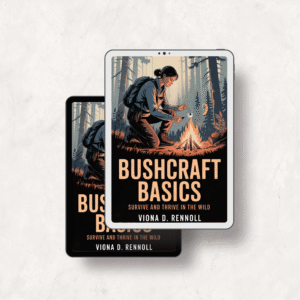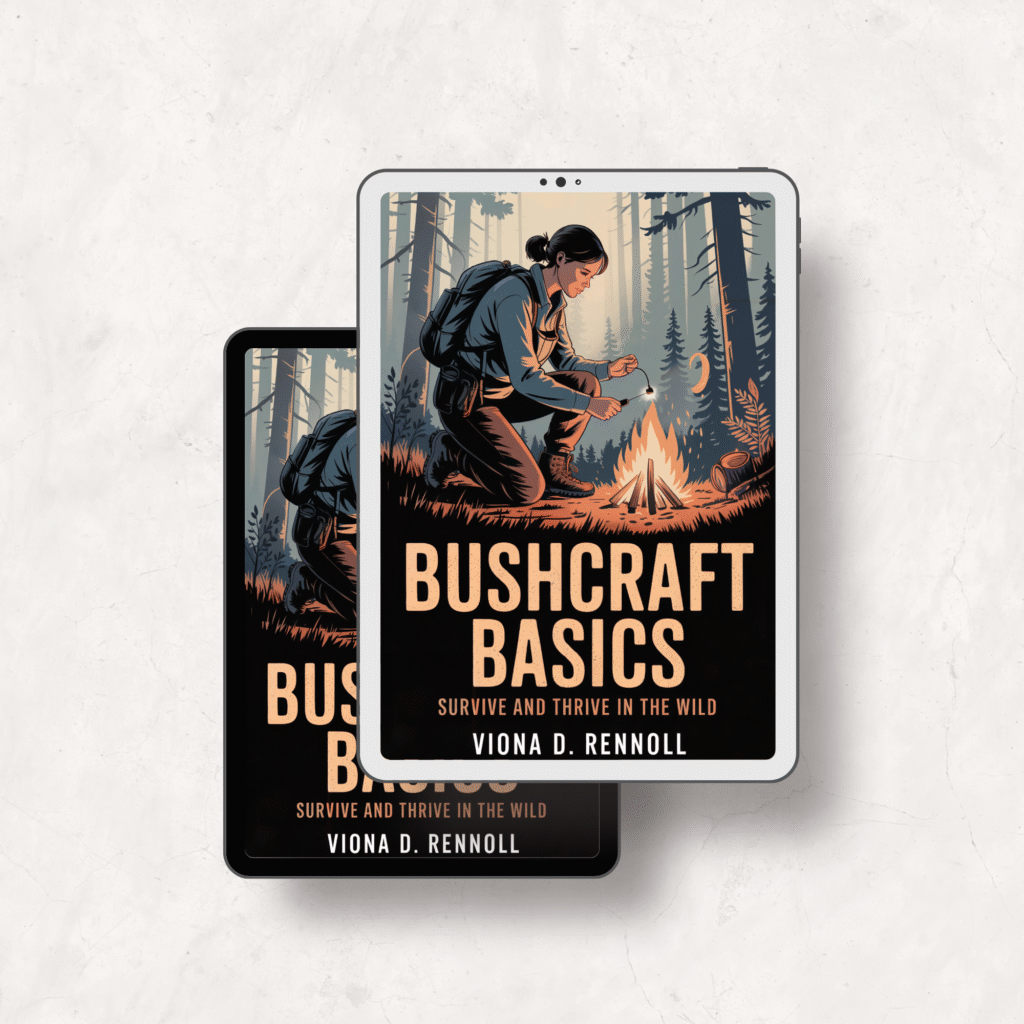Bushcraft Basics Review – Complete Guide to Wilderness Survival Skills and Outdoor Self-Reliance

Bushcraft Basics: Survive and Thrive in the Wild transforms complete beginners into confident wilderness survivalists through proven techniques and practical outdoor skills. Whether you’re struggling with basic camping challenges or want to develop serious self-reliance skills, this comprehensive guide addresses every essential aspect of wilderness survival. From fire starting in harsh conditions to building weatherproof shelters using only natural materials, you’ll master time-tested bushcraft techniques that work in real-world scenarios. The book combines traditional survival wisdom with modern safety practices, making it perfect for outdoor enthusiasts, preppers, and anyone seeking genuine wilderness confidence and survival skills mastery.
Beyond basic survival techniques, this expertly crafted guide emphasizes sustainable outdoor practices and mental resilience training. You’ll develop the mindset and practical abilities needed to thrive in challenging environments while respecting natural ecosystems and minimizing environmental impact.
What You’ll Discover
- Master Essential Fire Starting Techniques: Learn reliable methods for creating fire in wet, windy, and challenging conditions using friction methods and natural materials
- Build Weatherproof Wilderness Shelters: Discover how to construct effective protection from harsh elements using only materials found in nature
- Navigate Without Technology: Master natural navigation skills using sun, stars, terrain features, and vegetation patterns to stay oriented in any environment
- Identify and Prepare Wild Food Sources: Safely forage and prepare edible plants while avoiding dangerous look-alikes and toxic species
- Craft Essential Survival Tools: Learn to improvise, create, and maintain critical gear using minimal resources and natural materials
- Develop Mental Resilience and Calm: Build the psychological strength and emotional control needed to make smart decisions under extreme stress
Why This Book Matters
Modern life has disconnected us from essential survival skills our ancestors took for granted. Bushcraft Basics bridges that gap by teaching practical wilderness skills that build genuine self-confidence and preparedness. Unlike theoretical survival guides, this book emphasizes hands-on practice and real-world application. You’ll gain skills that work whether you’re facing an unexpected emergency, planning extended camping trips, or simply want to feel more connected to nature and self-reliant outdoors.
The author’s approach combines traditional indigenous knowledge with contemporary safety practices, ensuring you learn effective techniques while maintaining respect for natural environments. Each skill builds upon previous lessons, creating a comprehensive foundation for wilderness competence and outdoor leadership abilities.
Key Features
This comprehensive ebook spans multiple detailed chapters covering shelter construction, fire mastery, food procurement, navigation, tool crafting, and mental preparedness. Available as an instant digital download, you’ll receive immediate access to step-by-step instructions, practical exercises, and safety guidelines. The format allows for easy reading on any device, with printable sections for hands-on field practice. Also available as audiobook on Google Play Books and Spotify for convenient listening during commutes or workout sessions.
Frequently Asked Questions
Is Bushcraft Basics suitable for complete beginners with no outdoor experience?
Absolutely. The book starts with fundamental concepts and builds skills progressively. Each technique includes clear instructions, safety guidelines, and common beginner mistakes to avoid. You’ll start with simple exercises before advancing to complex survival scenarios.
Can these wilderness survival skills be practiced safely in suburban or urban areas?
Yes, many techniques can be practiced in backyards, local parks, or designated camping areas. The book emphasizes starting with controlled environments before venturing into remote wilderness settings, ensuring you build confidence safely.
How does this book address environmental responsibility and sustainable outdoor practices?
Every technique emphasizes Leave No Trace principles and sustainable resource use. You’ll learn to source materials responsibly, minimize environmental impact, and practice bushcraft skills that protect natural ecosystems for future generations.
Get Your Copy Today
Transform your outdoor confidence and wilderness preparedness with this comprehensive survival guide. Available for instant download at just $6.99, this ebook provides exceptional value compared to expensive survival courses or wilderness workshops. Also available as audiobook on Google Play Books and Spotify for learning during daily activities. Purchase your copy through all major ebook retailers including Apple Books, Barnes & Noble, and Kobo to begin mastering essential bushcraft skills and developing true wilderness self-reliance today.
Watch the Video Review

